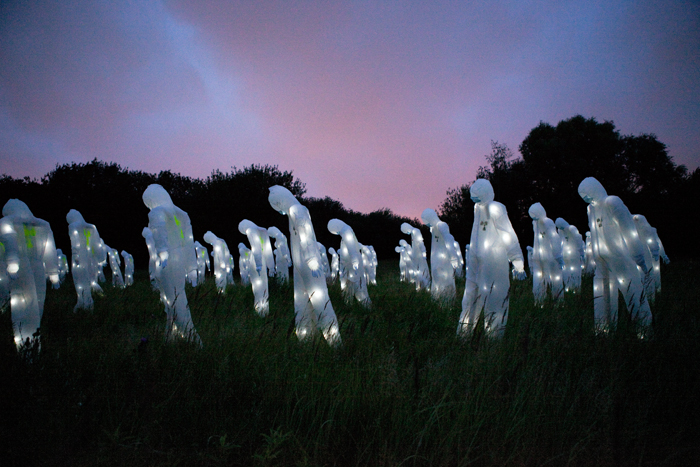 New York City Mayor Mike Bloomberg recently proposed a ban on sales of sugary drinks over 16 oz., prompting an astonishing outpouring of strong pundit feelings on the subject of “paternalism” in government policy. (Honestly, I saw more genuine anger over this than I have seen over torture, food-stamp cuts, climate denial … it does not speak well of the political elite, frankly.)
New York City Mayor Mike Bloomberg recently proposed a ban on sales of sugary drinks over 16 oz., prompting an astonishing outpouring of strong pundit feelings on the subject of “paternalism” in government policy. (Honestly, I saw more genuine anger over this than I have seen over torture, food-stamp cuts, climate denial … it does not speak well of the political elite, frankly.)
I’m not all that interested in soda policy as such. I agree with many others that taxing soda would make more sense than banning specific sizes. I am, however, interested in the deeper issues at stake in this discussion.
The clearest articulation of the anti-paternalistic case, the one that gets at the fundamentals, comes by way of one of my favorite writers, Will Wilkinson:
[I]deas about the human good are variable, controversial, and ever-changing. Indeed, the fact of pluralism — the diversity of conceptions of the good and the right — is much the original impetus of liberalism. The liberal idea was that, in the interests of civil peace and the benefits thereof, the state should remove itself as much as possible from controversies over religion and morality and allow each individual conscience sovereignty over each individual life.
…
How do we stay (or become) liberal? By opposing state encroachment on the individual’s rightful sphere of sovereignty.
So, what are the bounds of this “sphere of sovereignty”? As I understand it, a good (small-l) liberal will say that it contains all “victimless” decisions — all those decisions that bring consequences only for the decider. If it only affects me, the state should butt out of it. This was always the objection to seat belt laws (who is hurt but the person who chooses not to wear one?) and is now the objection to soda laws (who gets obese but the soda drinker?) and marijuana laws (my being high doesn’t hurt you).
By temperament and general philosophical orientation, I’m extremely sympathetic to this kind of argument. There was a time in my life when I identified as a fairly rabid libertarian. (Hey, we all experimented in college.) The problem that has nagged me more and more over the years is simply that the class of “actions that do not affect others” is a null set. Nothing I do in the world only affects me.
I don’t just mean this only as an airy-fairy metaphysical observation (though I mean it that way too), but as a practical matter. Take sodas, for instance: The costs of health care in the U.S. are socialized to some degree, so individual decisions to get unhealthier do affect me. I pay when rates are driven up, or when people end up in the emergency room.
So whatever the line is — between the sphere of rights and sovereign individuality on one hand and the sphere of interconnectedness and social responsibility on the other — it can’t be “actions that don’t affect others.” There are none!
Perhaps, then, the distinction is between actions that mostly affect me and those that substantially affect others. If I dump trash in a neighbor’s yard, obviously I’m violating her sovereignty and the state has a legitimate right to constrain my liberty; no one would call that “paternalism.” But the causal chain between my decision to drink a big soda and the effect on health-care costs is long, tenuous, incremental, and uncertain. Perhaps I decided to jog home after my soda! Do I get a tax credit for that? In the case of soda, the claim to individual sovereignty is more immediate, more tangible, than the long thread connecting the decision to impacts on the collective welfare.
What this reveals is that state decisions to restrict individual behavior can not be guided by a clean line between the individual and collective spheres; there is no clean line. Restrictions on individual liberty will always be judgment calls about whether negative effects on others (externalities) outweigh the presumption of sovereignty.
This dilemma is on the mind of anyone who covers climate and energy. Climate change is, among other things, a fascinating conceptual problem. The causal chain between individual actions and changes in the climate is extremely long and hazy. That is true of any individual action (except maybe Lindsey Graham’s decision to bail on the climate bill, the jerk). Does this mean that a liberal society can’t constrain individuals in the name of climate change at all? That would be awkward.
Or take energy efficiency. The enduring problem is that a given individual or company generally saves a pretty modest amount of money by, say, better insulating their buildings or buying a more efficient clothes washer — often not enough to spur action. But collectively, enough energy can be profitably saved to materially affect pollution levels, climate emissions, and decisions to add new generation units, all of which have substantial collective impact. Some individuals bridle at the (ahem, mythical) loss of their freedom to buy incandescent light bulbs, but is that freedom sacrosanct relative to, say, the freedom of Tuvalu to stay above the water line? Is the connection direct enough to warrant state intervention?
What we’ve learned from climate change is that we are on a small planet hurtling through space and the decisions we make today affect all of humanity and future generations. There is no resource consumption that doesn’t affect others, no “away” to throw anything. Often individual effects on global ecosystems are so tenuous and distant that they seem a weak justification for direct restrictions on individual choice. Yet avoiding catastrophe will almost certainly involve substantial behavior changes. What to do?
The answer cannot be to use the fact of collective climate responsibility to justify any and every state intervention. This is what every right-winger believes that enviros secretly yearn for — a justification to meddle in everything, to force people to live the “right” way. I have never met any actual enviro who pines for that. The ones I’ve talked to share my conviction that we must preserve the presumption of individual sovereignty that makes liberalism work so much better than the alternatives. But neither can the answer be simply to default back to atomism and forget what we know about the immense scope and, in come cases, irrevocability of our collective impacts.
Scientists are rather frantically signaling to us that serious disruptions in the planet’s biophysical systems are approaching rapidly. Those systems form the substrate of all human societies, the preconditions for our thriving. If the sh*t hits the fan, there will be heavy-handed government intervention. Nothing fertilizes government power like fear, want, and lawlessness.
A wise society would use some foresight and begin now, openly and democratically, discussing what collective changes in behavior will be necessary to pass on to our descendents a planet that contains the prerequisites of a free, happy life. We should update our conception of liberalism in light of ecological realities. Keeping things as they are is not an option; change will come, either ramped up slowly (via a fair bit of paternalism) or arriving later in jolts and traumas.



